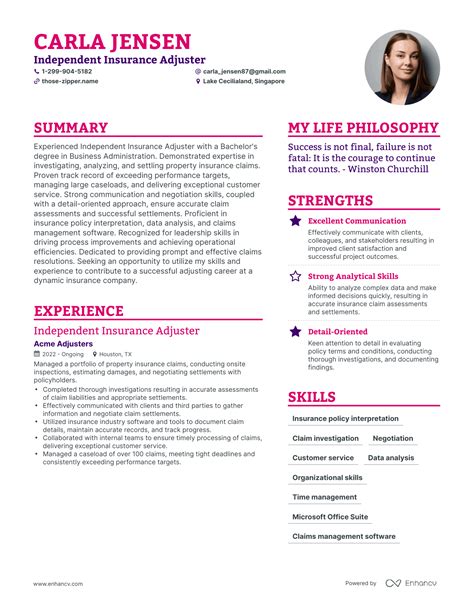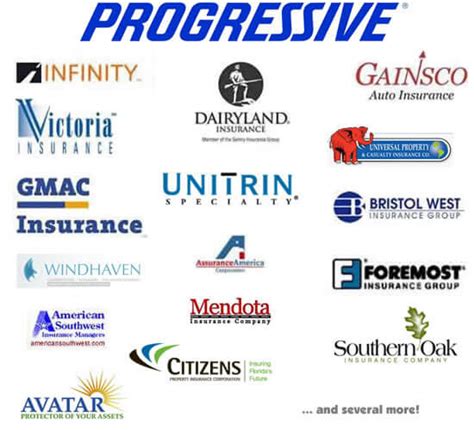How Do I Become An Insurance Claims Adjuster

Insurance claims adjusters play a crucial role in the insurance industry, serving as mediators between policyholders and insurance companies. Their primary responsibility is to investigate, evaluate, and settle insurance claims fairly and efficiently. Becoming an insurance claims adjuster requires a combination of education, training, and specific skills. In this comprehensive guide, we will explore the steps, qualifications, and considerations necessary to embark on a career as an insurance claims adjuster.
Education and Qualifications

While there may be some flexibility in the educational requirements for insurance claims adjusters, having a solid foundation of knowledge is essential. Here are some key educational paths and qualifications to consider:
Degree Programs
Pursuing a bachelor’s degree in a relevant field can provide a strong academic background for a career in insurance claims adjustment. Degrees in risk management, insurance, business administration, or a related field can offer valuable knowledge in insurance principles, risk assessment, and legal aspects of insurance claims. These programs often include courses on insurance law, property and casualty insurance, claims handling, and loss adjustment techniques.
For instance, a bachelor's degree in risk management and insurance may cover topics such as commercial insurance, liability coverage, and risk management strategies. These programs can equip students with the theoretical understanding needed to navigate the complex world of insurance claims.
Certification and Licensing
In many jurisdictions, insurance claims adjusters are required to obtain specific certifications and licenses to practice their profession. These certifications ensure that adjusters possess the necessary knowledge and skills to handle insurance claims ethically and effectively.
The exact certification requirements can vary depending on the type of insurance and the state or country you plan to work in. Some common certifications for insurance claims adjusters include:
- Property and Casualty Adjuster License: This license is often required for adjusters handling property damage and liability claims. It covers various aspects of property and casualty insurance, including claim investigation, settlement negotiations, and legal considerations.
- Life and Health Insurance Adjuster License: Adjusters specializing in life and health insurance claims typically need this license. It focuses on understanding life insurance policies, health insurance plans, and the unique considerations involved in settling these types of claims.
- General Lines Adjuster License: This license is more comprehensive and allows adjusters to handle a broader range of insurance claims, including property, casualty, and liability claims.
To obtain these licenses, individuals typically need to pass examinations that assess their knowledge of insurance laws, claim handling procedures, and ethical practices. The examinations may be administered by state insurance departments or industry-recognized organizations.
Additional Training and Experience
Beyond formal education and certifications, gaining practical experience in the insurance industry can be invaluable for aspiring insurance claims adjusters. Here are some ways to acquire relevant experience:
- Internships: Pursuing internships with insurance companies or independent adjusting firms can provide hands-on experience in claims handling. Internships offer an opportunity to work alongside experienced adjusters, learn the day-to-day operations, and develop practical skills.
- Entry-level Positions: Entry-level positions in insurance companies, such as customer service representatives or claims assistants, can be a stepping stone towards becoming an adjuster. These roles often involve assisting with basic claim tasks, providing customer support, and gaining familiarity with insurance processes.
- Independent Adjusting Firms: Working for independent adjusting firms can offer diverse claim handling experiences. These firms often work on a contract basis with insurance companies, providing adjusters with exposure to various claim types and the opportunity to develop their skills in a fast-paced environment.
Building a solid foundation of practical experience can enhance your resume and demonstrate your commitment to the field. It also allows you to network with industry professionals and gain valuable insights into the claims adjustment process.
Skills and Traits of a Successful Insurance Claims Adjuster

In addition to the educational and certification requirements, possessing certain skills and traits can significantly contribute to your success as an insurance claims adjuster. Here are some key attributes that are highly valued in this profession:
Analytical Skills
Insurance claims adjusters must possess strong analytical skills to assess and evaluate claims accurately. This involves analyzing policy language, investigating the circumstances of a claim, and determining the extent of coverage. The ability to break down complex information, identify relevant details, and make logical decisions is essential for effective claim handling.
For example, when assessing a property damage claim, an adjuster needs to analyze the policy, understand the type and extent of damage, and determine the appropriate compensation based on the policy terms. Analytical skills enable adjusters to make fair and informed decisions, ensuring that policyholders receive the coverage they are entitled to.
Communication and Interpersonal Skills
Effective communication is a cornerstone of the insurance claims adjuster role. Adjusters must communicate clearly and professionally with policyholders, insurance company representatives, and other stakeholders involved in the claims process. They need to be adept at listening, empathizing, and conveying information accurately.
Excellent interpersonal skills are crucial when dealing with individuals who may be stressed or frustrated due to the circumstances of their claim. Adjusters must maintain a professional and compassionate approach, ensuring that policyholders feel heard and understood. Building strong relationships and maintaining open lines of communication can contribute to a positive claims experience for all parties involved.
Negotiation Skills
Insurance claims adjusters often find themselves in situations that require negotiation skills. They need to strike a balance between the interests of the policyholder and the insurance company to reach a fair and reasonable settlement. Effective negotiation involves understanding the opposing party’s perspective, identifying areas of agreement, and finding creative solutions to resolve disputes.
For instance, when a claim is disputed or there are differing interpretations of policy coverage, an adjuster's negotiation skills come into play. They must carefully evaluate the evidence, consider the policy language, and engage in constructive discussions to reach a mutually beneficial outcome.
Attention to Detail
Attention to detail is critical in the insurance claims adjustment process. Adjusters must meticulously review policy documents, claims forms, and supporting evidence to ensure accuracy and identify any discrepancies or fraud attempts. Missing crucial details or overlooking important information can lead to incorrect claim settlements.
For example, when assessing a liability claim, an adjuster must carefully examine the policy, the incident report, and any witness statements to determine fault and liability. Attention to detail ensures that all relevant factors are considered, reducing the risk of errors and ensuring fair claim settlements.
Time Management and Organization
Insurance claims adjusters often handle multiple claims simultaneously, making time management and organizational skills essential. They must prioritize tasks, manage deadlines, and ensure that claims are processed efficiently. Effective organization helps adjusters stay on top of their workload and provides a structured approach to claim handling.
By implementing efficient systems for documenting, tracking, and managing claims, adjusters can optimize their workflow and provide timely responses to policyholders and stakeholders. Strong time management and organization skills contribute to a smooth and professional claims adjustment process.
Career Opportunities and Advancement
The insurance industry offers a range of career paths and opportunities for insurance claims adjusters. As you gain experience and develop your skills, you can explore various avenues for professional growth and advancement.
Specialization
Insurance claims adjustment offers opportunities for specialization in different areas of insurance. Some adjusters choose to focus on specific types of claims, such as property damage, liability, or workers’ compensation. Specializing in a particular field allows adjusters to develop deep expertise and become highly skilled in handling complex claims within that domain.
For instance, an adjuster who specializes in property damage claims may become an expert in assessing and evaluating various types of property damage, including fire, flood, or vandalism. This specialization can lead to increased responsibility, higher earning potential, and a reputation as a trusted advisor in their niche area.
Leadership Roles
As insurance claims adjusters gain experience and demonstrate their proficiency, they may have the opportunity to take on leadership roles within their organizations. These roles often involve supervising and mentoring junior adjusters, overseeing claim teams, and providing guidance and expertise to ensure consistent and high-quality claim handling.
Leadership positions offer the chance to influence organizational policies, implement best practices, and contribute to the overall success and reputation of the insurance company. Adjusters in leadership roles may also have opportunities to participate in strategic decision-making and contribute to the development of innovative claim handling processes.
Independent Adjusting
For those seeking greater autonomy and flexibility, becoming an independent insurance adjuster can be an attractive career path. Independent adjusters work on a contract basis for insurance companies, providing their expertise and services as needed. This arrangement offers the opportunity to work with multiple clients, gain diverse experience, and set their own schedules.
Independent adjusters often handle a variety of claims, ranging from simple to complex, and may specialize in certain areas to meet the specific needs of their clients. While this career path requires strong business acumen and the ability to manage one's own practice, it offers the potential for higher earnings and the freedom to choose one's work environment.
Continuing Education and Professional Development
To stay current with industry developments and maintain their professional competency, insurance claims adjusters should prioritize ongoing education and professional development. This can include attending industry conferences, workshops, and seminars to stay updated on legal and regulatory changes, emerging technologies, and best practices in claims handling.
Additionally, pursuing advanced certifications or completing specialized training programs can enhance an adjuster's expertise and open doors to new career opportunities. For example, obtaining a Certified Insurance Claims Professional (CICP) designation or completing a specialized program in fraud detection can provide a competitive edge and demonstrate a commitment to excellence in the field.
Conclusion
Becoming an insurance claims adjuster requires a combination of education, certifications, practical experience, and a set of valuable skills. By acquiring the necessary qualifications, developing strong analytical and communication abilities, and embracing continuous learning, you can build a successful career in this dynamic and essential field. The insurance industry offers a wealth of opportunities for growth and specialization, allowing insurance claims adjusters to make a meaningful impact in helping policyholders navigate the claims process and receive fair settlements.
What is the average salary for insurance claims adjusters?
+The salary for insurance claims adjusters can vary depending on factors such as experience, specialization, and geographic location. According to recent data, the median annual salary for insurance claims adjusters in the United States is approximately $60,000. However, entry-level positions may offer lower salaries, while experienced adjusters with specialized skills can earn significantly higher incomes.
Are there any specific physical requirements for insurance claims adjusters?
+While physical requirements may vary depending on the type of claims handled, most insurance claims adjuster positions do not have significant physical demands. However, adjusters may occasionally need to travel to claim sites, inspect properties, or conduct on-site investigations. These tasks may require some physical mobility and the ability to navigate various environments.
How long does it typically take to become an insurance claims adjuster?
+The time it takes to become an insurance claims adjuster can vary based on individual circumstances and the specific requirements of your jurisdiction. On average, it may take several months to a year to complete the necessary education, obtain certifications, and gain relevant experience. However, the timeline can be shorter for individuals with prior experience in the insurance industry or related fields.



